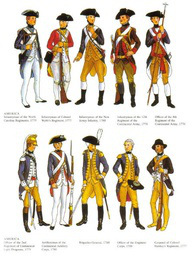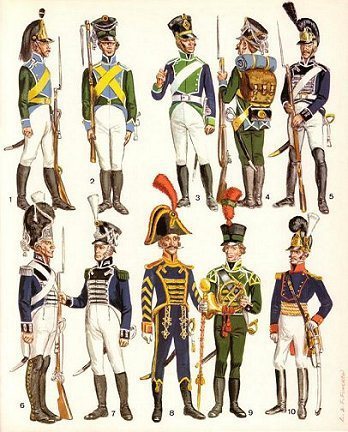Jude Knight's Blog, page 139
August 26, 2015
WIP Wednesday
 This last week, I submitted my novella for the Bluestocking Belles’ Christmas anthology. It’s called Gingerbread Bride, and the anthology is Mistletoe, Marriage, and Mayhem.
This last week, I submitted my novella for the Bluestocking Belles’ Christmas anthology. It’s called Gingerbread Bride, and the anthology is Mistletoe, Marriage, and Mayhem.
To celebrate, I’m making Work-in-Progress Wednesday about food. Post seven to eight lines from your work-in-progress with some connection to food (or drink, if your characters don’t eat on stage).
Don’t forget to share on Twitter, Facebook, and your other social media. If you tag me, I’ll like!
Mary smiled with satisfaction as she placed the last of the little gingerbread ladies into the box. In the four weeks she had been at Aunt Dorothy’s, she had learned a number of recipes, and helped with all kinds of baking, but the gingerbread biscuits, which she had learned from the cook on the Olympus, became her specialty…
Aunt Dorothy had round and star cutters, and cutters in the shape of various animals. When the alderman’s daughter asked for gingerbread ladies and gentlemen for her wedding breakfast, Mary had been delighted with the notion, and the cutters the tinker made to her pencil drawings worked very well.
The icing gave them clothes and features; a whole box of little gingerbread grooms, and a box of little gingerbread brides.
And please, do consider joining us for our cover reveal party next week. The @BellesInBlue have great parties!



August 22, 2015
All the ladies (and some of the gents) love a soldier on Wanton Weekends
 When I was researching wanton women (and men) for my release party, I set out to write a post on London rent boys and the molly brothels of Georgian England. I will do that at some point, but I was distracted by a reference. Shiny fact, shiny fact… and there went I, chasing off at a tangent.
When I was researching wanton women (and men) for my release party, I set out to write a post on London rent boys and the molly brothels of Georgian England. I will do that at some point, but I was distracted by a reference. Shiny fact, shiny fact… and there went I, chasing off at a tangent.
The research articles I found talked about the coffee houses and private rooms that provided a safe haven for those with same sex attraction to meet and socialise. A heavy on the door checked that only members and their guests could enter, keeping patrons safe from spies. And when acting on same sex attraction could attract the death penalty, such security was essential.
And here’s my shiny fact. One of the uses to which such safe havens were put, said several of my sources, was as a place to bring lovers hired for the night: rent boys, they said, and soldiers.
Well. Who could resist such a clue? Not I, certainly. A bit more investigation, and I found that quite a number of soldiers supplemented their income by hiring themselves out – a fact well known at the time. And yesterday I discovered a reference to a Victorian gentleman from Venice, and his soldier friend. The quote that follows is from Prostitution, an article by Judith Flanders.
A diary tells on one such meeting, its author an Englishman living in Venice, but visiting London in the late 1840s. He cruised regularly: ‘Fine. Tried my luck once more. I sat in the Park; but so shy that I cd make [illegible] nothing.’ ‘Fun & Folly…Saw J.B. We went up to Albany St.’ Later he filled in the scanty details of his meeting with ‘J.B.’, a trooper named Jack Brand: ‘I saw you in all your beauty, smiling as your gallant charger reared & pranced…And then in the [sentry] Box I spoke to you, & after Parade we met for five minutes, & you told me your name’ That evening, ‘at the Arch at Hyde Park Corner met my poor Boy,’ where they rented a room.[4] The story continued, a casual commercial pick-up transforming into a relationship. But after only a few months Brand died of cholera, leaving his grieving lover behind.
 I became diverted into a discussion about uniforms. Were they so ornate, some researchers speculate, to appeal to women? Or to potential male patrons?
I became diverted into a discussion about uniforms. Were they so ornate, some researchers speculate, to appeal to women? Or to potential male patrons?
To my mind, the either/or nature of the question is not appealing. Maybe uniforms were flashy because armies are conservative institutions and uniforms harked back to a time when being a peacock in dress was a sign of wealth and power, not a subtle hint about sexual preferences.
However, by the Regency era, dress uniforms and court dress were the last bastion of extreme fashion for those who liked a surplus of flash and glitter.
So today’s post is dedicated to uniforms and those within them for whom a visit with a friend to a friendly coffee house may have been a useful way to earn an extra coin or two.



All the ladies (and some of the gents) love a soldier on wanton weekends
 When I was researching wanton women (and men) for my release party, I set out to write a post on London rent boys and the molly brothels of Georgian England. I will do that at some point, but I was distracted by a reference. Shiny fact, shiny fact… and there went I, chasing off at a tangent.
When I was researching wanton women (and men) for my release party, I set out to write a post on London rent boys and the molly brothels of Georgian England. I will do that at some point, but I was distracted by a reference. Shiny fact, shiny fact… and there went I, chasing off at a tangent.
The research articles I found talked about the coffee houses and private rooms that provided a safe haven for those with same sex attraction to meet and socialise. A heavy on the door checked that only members and their guests could enter, keeping patrons safe from spies. And when acting on same sex attraction could attract the death penalty, such security was essential.
And here’s my shiny fact. One of the uses to which such safe havens were put, said several of my sources, was as a place to bring lovers hired for the night: rent boys, they said, and soldiers.
Well. Who could resist such a clue? Not I, certainly. A bit more investigation, and I found that quite a number of soldiers supplemented their income by hiring themselves out – a fact well known at the time. And yesterday I discovered a reference to a Victorian gentleman from Venice, and his soldier friend. The quote that follows is from Prostitution, an article by Judith Flanders.
A diary tells on one such meeting, its author an Englishman living in Venice, but visiting London in the late 1840s. He cruised regularly: ‘Fine. Tried my luck once more. I sat in the Park; but so shy that I cd make [illegible] nothing.’ ‘Fun & Folly…Saw J.B. We went up to Albany St.’ Later he filled in the scanty details of his meeting with ‘J.B.’, a trooper named Jack Brand: ‘I saw you in all your beauty, smiling as your gallant charger reared & pranced…And then in the [sentry] Box I spoke to you, & after Parade we met for five minutes, & you told me your name’ That evening, ‘at the Arch at Hyde Park Corner met my poor Boy,’ where they rented a room.[4] The story continued, a casual commercial pick-up transforming into a relationship. But after only a few months Brand died of cholera, leaving his grieving lover behind.
 I became diverted into a discussion about uniforms. Were they so ornate, some researchers speculate, to appeal to women? Or to potential male patrons?
I became diverted into a discussion about uniforms. Were they so ornate, some researchers speculate, to appeal to women? Or to potential male patrons?
To my mind, the either/or nature of the question is not appealing. Maybe uniforms were flashy because armies are conservative institutions and uniforms harked back to a time when being a peacock in dress was a sign of wealth and power, not a subtle hint about sexual preferences.
However, by the Regency era, dress uniforms and court dress were the last bastion of extreme fashion for those who liked a surplus of flash and glitter.
So today’s post is dedicated to uniforms and those within them for whom a visit with a friend to a friendly coffee house may have been a useful way to earn an extra coin or two.



August 19, 2015
WIP Wednesdays
I love how several authors offer an opportunity on their blogs for other authors to strut their stuff. Imitation being the sincerest form of flattery, I figured I’d give it a go, so look for me to post a Work-In-Progress Wednesday every week. I’ll set a theme and show you one of mine, and you give me five to seven sentences in the comments.
This week, since it’s the first, how about first meetings? Don’t forget to share once you’re done!
Here’s mine, from the made-to-order story I’m writing for Mary Anne Landers.
As she turned the corner into Frederick Street, a particularly sharp gust skittered a broken branch across her path, tangling it into her skirts.
She stumbled, and would have landed in the mud if firm hands had not suddenly caught her. As it was, in putting out her hands to break the expected fall, she had dropped her burdens. The shopping basket fell sideways, tumbling fruit, vegetables, and the wrapped parcel of meat into a waiting puddle. The parcel from the haberdashers that she carried on her other arm thankfully stayed intact and landed on a relatively dry spot.
She took all this in at a glance, most of her attention on her rescuer. A craggy face bronzed by the sun, amused brown eyes under thick level brows, a mouth that looked made for laughter. He was bundled against the cold wind in a greatcoat, muffler, and cloth cap.
The image is of Dunedin in the mid 1860s, the setting for my story.



August 14, 2015
Phyrne of Athens on Wanton Weekends
For today’s courtesan, we’re stepping back 2,500 years, to the hetaera Phryne of classical Athens. The hetaerae were independent, educated and shrewd at a time that wives were kept confined and ignorant.
Phryne apparently tailored her fees to her client, charging very high prices to some, and giving herself to the philosopher Diogenes free of charge, because she admired his intellect.
She became so wealthy at her profession that she offered to rebuild the walls of Thebes after Alexander the Great destroyed them. Her only condition was that they be inscribed ‘Destroyed by Alexander, restored by Phryne the courtesan’. This was a step too far for the city government, however.

Öèôðîâàÿ ðåïðîäóêöèÿ íàõîäèòñÿ â èíòåðíåò-ìóçåå gallerix.ru
She ran afoul of her own city government — they did not like wealthy independent women. And they had their chance to put this one in her place when she stripped naked as an offering to the god Poseidon during a festival. She was put on trial for blasphemy, the punishment for which was death. Things were looking grim when her lawyer stripped off her gown. “How could a festival in honour of the gods be desecrated by beauty they themselves bestowed,” he said.
It worked. Rather than offend the goddess Aphrodite, the judges acquitted the courtesan, prompting this letter to her lawyer from one of her friends:
We courtesans are grateful to you, and each one of us is just as grateful as Phryne. The suit, to be sure…involved Phryne alone, but it meant danger for us all, for…if we…face prosecution for impiety, it’s better for us to have done with this way of living…you have not merely saved a good mistress for yourself, but have put the rest of us in a mood to reward you on her account.



August 13, 2015
Good things come to those who work hard and never give up
August 10, 2015
Tuesday Talk – throwing a great Facebook party
This post is part of the series on marketing in the bazillion-book marketplace that Mari Christie and I are co-posting (her Marketing Mondays and my Tuesday Talks, thanks to the spinning earth).
 Have you been to any Facebook parties? In the past six weeks, I’ve hosted two, and guested at another two—and I have more coming up.
Have you been to any Facebook parties? In the past six weeks, I’ve hosted two, and guested at another two—and I have more coming up.
The other day, someone asked me if Facebook parties sold books. Which, of course, isn’t the point of them. As Mari and I have said time and again in these posts, marketing is about making friends, and then about turning at least some of them into fans. And Facebook parties are a great opportunity to do that.
This post is not about the philosophy though. Instead, here are some of the techniques we’ve picked up for hosting at Facebook parties. We’d love to know yours!
Before the party
To create interest in the party, I post for weeks beforehand. Post stuff people want to know, not just relentless self-promotion. In the run-up to the party, you want them to know that you’ll be offering entertainment, so demonstrate that. (Show, don’t tell, right?)
My theme for the launch party for Farewell to Kindness was a country fair. I posted the songs that village singers might have sung during such a fair. I posted food people might have eaten at a fair, and games and activities that might have been on offer. I asked questions and invited comment. I also posted information about each of the guest hosts and their books. And, yes, I posted excerpts.
For A Baron for Becky, I posted a series of vignettes on courtesans through history, as well as guest hosts and excerpts. And I invited people to post pictures of what they would wear to a Courtesan’s Ball.
To prepare for the actual day, whether I’m hosting or simply doing a takeover for another author, I write myself a run-time, with the time and the text for each post and the names of the images I’m going to use. I put the posting time above each post. It might slip a minute or two on the day, but the times guide me. If interaction is high, I might skip a post, but I’d rather have too much than too little!
I put everything I need into a folder—or a series of folders if the event is longer than an hour.
Mari swears by putting the images into an album on her Facebook profile, and then linking to them. This saves loading time on the day.
If I’m host, I send a guest author checklist to those who have agreed to party with me. It has some of the tips in this post, tells them their timeslot, and asks them for their bio, the name and blurb of the book they intend to promote, and what (if anything) they plan to give away.
What kind of posts?
Remember that your goal is to make friends, so post links to your social media. I always post information about the Bluestocking Belles and any events we have coming up as a group, such as Book Club.
Post games—if you attend a few parties, you’ll find out which ones get the most comments and interaction.
Post questions. If you can relate them to your excerpts, all the better. For example, here’s a scene of a botched proposal; tell us your proposal story.
Ask people to post photos. Hot guys are usually a favourite, or suggested actors to play your hero and heroine, or anything else you might like.
At the event
My big tip is to keep the posts coming. When we did the Name Release party for the Bluestocking Belles anthology, we had three minute slots and a 30 minute event. And around 15 posts in total. Fast and furious! I’ve just done a one hour takeover, and I prepared and used 12 posts. Party hard and have a great time.
With busy parties, your posts can soon sink down the event. To make sure I can easily get back to my posts so I can comment (and later find winners), I copy the url as soon as I’ve created the post and paste it into my runtime. If you want to try this, just click on the date/time below your name on the post and it’ll bring up that post so you can copy the url. Then the back arrow will take you back to the party.
And get into those comment streams! If you’re the host, you’ll be commenting on your guest author’s posts, keeping the conversation going. I usually do a hit and run when I’m a guest host, because of the spinning earth. Parties are almost always during my working day. But I love it when guest authors arrive early and stick around to play.
After the party
Select and contact your winners as soon as you can, and don’t forget to thank the team who helped you put on the party (your host if you’re a guest author; your guest authors if you’re a host).



August 8, 2015
Veronica Franco on Wanton Weekends
In the weeks before the launch of A Baron for Becky, I wrote a number of vignettes about courtesans, concubines, mistresses, prostitutes, sex slaves, and others who were kept for their bodies or who used their bodies to win a place in the world. It was interesting material, and I’ve saved it all, so today I’m beginning a series called Wanton Weekends. Each week, I’ll post another vignette, and when I’ve run out, I’ll research and write some more. So if I don’t cover a period or a wanton you’d like to hear more about, just comment and I’ll add to my list.
The life of a courtesan may seem glamorous, but my character Becky hopes to save enough money to leave it. How about you? Courtesan or Bride? Before you answer, consider the following quote from a letter written by Renaissance courtesan, Veronica Franco:
I’ll add that even if fate should be completely favourable and kind to her, this is a life that always turns out to be a misery. It’s a most wretched thing, contrary to human reason, to subject one’s body and labour to a slavery terrifying even to think of.
To make oneself prey to so many men, at the risk of being stripped, robbed, even killed, so that one man, one day, may snatch away from you everything you have acquired from many over such a long time, along with so many other dangers of injury and dreadful contagious diseases; to eat with another’s mouth, sleep with another’s eyes, move according to another’s will, obviously rushing toward the shipwreck of your mind and your body- what greater misery?
What wealth, what luxuries, what delights can outweigh all this? Believe me, among all the world’s calamities, this is the worst. And if to worldly concerns you add those of the soul, what greater doom and certainty of damnation could there be?
(Letter 22,’ A Warning to a mother considering turning her daughter into a courtesan’ Veronica Franco, Poems and Selected Letters, edited and translated by Ann Rosalind Jones and Margaret F. Rosenthal, Chicago University Press, 1998, pp.37-40)
Veronica was a courtesan and the daughter of a courtesan. Given a fine education, she was trained for marriage, but her union with a wealthy physician ended badly. Needing to support herself, she turned to the sex trade, and quickly became highly regarded. She was listed (in a guide to courtesans of Venice) as one of the leading courtesans of the day.
She was a celebrated member of literary circles, and a poet in her own right, publishing often erotic, sometimes sexually explicit, poetry as well as a collection of 50 letters.
The movie, Dangerous Beauty, based on Margaret Rosenthal’s book The Honest Courtesan, opens with this one of her poems.
 We danced our youth in a dreamed-of city,
We danced our youth in a dreamed-of city,
Venice, paradise, proud and pretty.
We lived for love and lust and beauty,
Pleasure then our only duty;
Floating then twixt heaven and Earth
And drunk on plenty’s blessed mirth.
We thought ourselves eternal then,
Our glory sealed by God’s own pen.
But heav’n, we found is always frail,
Against man’s fear will always fail.
August 5, 2015
Cover reveal for Dangerous Weakness, by Caroline Warfield
 Today, I welcome Caroline Warfield to the blog. Caroline is a fellow Bluestocking Belle, and author of Dangerous Works and Dangerous Secrets, both of which I love. And today, she is sharing with us the cover of her next book in the series. Caroline, the stage is yours.
Today, I welcome Caroline Warfield to the blog. Caroline is a fellow Bluestocking Belle, and author of Dangerous Works and Dangerous Secrets, both of which I love. And today, she is sharing with us the cover of her next book in the series. Caroline, the stage is yours.
I am delighted to reveal the cover of Dangerous Weakness from Soul Mate Publishing, which will be available for preorder in September. I hoped also to tell you more about the hero, Richard Hayden, the Marquess of Glenaire and heir to the Duke of Sudbury, but characters can be elusive. They often have depths they show only reluctantly, even to their authors. Richard is particularly private about his life. I had to enlist the help of the interview fairies.
We managed to corner him in a reflective mood one afternoon in Saint James Park. When we took a place next to him on the bench and assured him nothing he said would be published until the distant future, he opened up, at least a bit.
What are you most proud of about your life?
 “Pride?” he sputters. “I come from a family that has raised it to an art form. My father wraps himself in it like a coronation robe and my mother? My mother floats into any room she enters on a river of pride. No one in the kingdom, she believes, has more consequence than a Hayden, except perhaps the royal dukes, and she isn’t sure about them. Is that what you wanted to know?”
“Pride?” he sputters. “I come from a family that has raised it to an art form. My father wraps himself in it like a coronation robe and my mother? My mother floats into any room she enters on a river of pride. No one in the kingdom, she believes, has more consequence than a Hayden, except perhaps the royal dukes, and she isn’t sure about them. Is that what you wanted to know?”
His tone is bitter, as if that kind of pride blights his life. When we suggest that is not precisely what we asked, he looks weary and appears to give the question more thought.
“A job well done gives me satisfaction,” he muses. “You might call that pride. I always put England first. I oversaw intelligence gathering during the Peninsular Campaign. I’ve managed the czar and his entourage, kept the Ottomans from provoking revolution, and helped negotiate the Treaty of Paris. I know my duty and I do it, even at personal cost.” A faraway look comes over him. “Even at cost,” he repeats.
He brightens somewhat. “I always do my best for my friends. I’m proud of that. I gathered information that brought Will, the Earl of Chadbourn, and the lady now his wife together. I managed to smooth my sister’s path to marriage with Andrew, though I may have erred earlier in their relationship. I am supporting Jamie, Baron Ross, who has inherited a tainted title and bankrupt estate, although Jamie has made himself scarce lately. The foolish man needs someone to keep him out of trouble. Is that what you had in mind?”
We nod and move on.
What are you most ashamed of in your life?
“Sometimes duty to friends suffers when duty to country demands it. I sent my best friend, Andrew, the brother of my heart, on a dreadful mission knowing he might fall into French hands. He found the vital intelligence but was captured and tortured. By the time we got him out he bore horrific scars, some visible on his person, some deeper.”
We suggest that incident sounded like the cost of duty. Is there nothing else? He looks ashamed for a moment.
“I’ve always treated women with care—with discretion at least. I have never been tempted beyond control until lately. I ruined an innocent. I’m ashamed of that. When I attempted to make it right, the woman threw my proposal in my face. It leaves a scar on my honor.”
Assured this interview will not see the light of day until long into the future he added, “It leaves a scar on my heart as well. I don’t understand it.”
In response to a raised eyebrow he went on reluctantly, “I may have been a touch managing about the matter. I offered to make her a marchioness. Does she need romance too?”
What impression do you make on people when they first meet you?
“They call me “the Marble Marquess,” in drawing rooms and gentlemen’s clubs. I must strike people as a cold fish. I can’t think why.”
Do you think you have turned out the way your parents expected?
“I’ve given my parents no reason to criticize. I do my duty by the estate, meeting monthly with His Grace and his man of business to stay abreast of affairs. I create no scandal. I never challenge either of them overtly. When I disagree, I do it discretely and they pretend not to know.”
We suggest that is an odd answer and ask for an example.
My sister, Georgiana, defied them openly and created what they consider a scandal when she published Poetry by the Female Authors of Ancient Greece, and allowed her authorship to be made public. She compounded that by marrying beneath her in their opinion. She ceased to exist as far as Her Grace is concerned. They don’t acknowledge her.”
“I offered to support her, but she refused my help. She married my friend Andrew Mallet and the two of them do very well. I see them often. My parents pretend not to know.”
What is the worst thing that has happened in your life? What did you learn from it?
“I might have said there was no such thing a year ago. Perhaps I would have believed it. Every privilege and deference has been given to me since birth. My family name smoothed the way for me in school, society, and even government. (Although I pride myself in having risen on my own merits.) In an odd way the lack of catastrophe is itself the worst thing. Rank can be a gilded cage. While my friends fought for king and country, I had to play my part behind a desk.”
“Worse, they all married for love, something I was raised to call maudlin. Seeing them now I’m not so certain. Women see me as a title to be coveted, wealth to be acquired, an ornament to be displayed. I can’t help what I am, but I can wish to be desired for myself rather than my prospects. Only one woman I ever met saw beyond those things, and she won’t have me. Lily Thorton’s rejection may be the worst thing. I’m still trying to learn what to do about it. Why can’t women be as easily managed as the affairs of state?”
How do you feel about your life right now? What, if anything, would you like to change?
In recent months I almost allowed myself to be drawn into my parents’ machinations regarding marriage. My mother wants a protégée and my father wants more land, more money, and more prestige—as if he didn’t already have more than he needs. They pressured me about it over dinner last night, each in their own way.”
“It came to me then: I don’t want a future duchess. I want a wife. I want family. I want what my friends have found. I have to try with Lily one more time. If she won’t have me, I have to find another woman who will see me for what I am. I refuse to live my parents’ life.”
Alas poor Richard was unaware at the time of this interview that his efforts to protect her had failed and Lily had already disappeared. If he wants to try again, he will have to pursue her.
To find out what happens, you will have to wait for Dangerous Weakness.
For Georgiana and Andrew’s story, read Dangerous Works.
For Baron Ross’s story, read Dangerous Secrets.
The Earl of Chadbourn’s story will be in “A Dangerous Nativity,” in Mistletoe, Marriage, and Mayhem available for preorder in October.
And here it is, folks: the cover!
If women were as easily managed as the affairs of state—or the recalcitrant Ottoman Empire—Richard Hayden, Marquess of Glenaire, would be a happier man. As it was the creatures—one woman in particular—made hash of his well-laid plans and bedeviled him on all sides.
Lily Thornton came home from Saint Petersburg in pursuit of marriage. She wants a husband and a partner, not an overbearing, managing man. She may be “the least likely candidate to be Marchioness of Glenaire,” but her problems are her own to fix, even if those problems include both a Russian villain and an interfering Ottoman official.
Given enough facts, Richard can fix anything. But protecting that impossible woman is proving almost as hard as protecting his heart, especially when Lily’s problems bring her dangerously close to an Ottoman revolution. As Lily’s personal problems entangle with Richard’s professional ones, and she pits her will against his, he chases her across the pirate-infested Mediterranean. Will she discover surrender isn’t defeat? It might even have its own sweet reward.
Meet Caroline Warfield
Caroline Warfield has at various times been an army brat, a librarian, a poet, a raiser of children, a nun, a bird watcher, an Internet and Web services manager, a conference speaker, an indexer, a tech writer, a genealogist, and, of course, a romantic. She has sailed through the English channel while it was still mined from WWII, stood on the walls of Troy, searched Scotland for the location of an entirely fictional castle (and found it), climbed the steps to the Parthenon, floated down the Thames from the Tower to Greenwich, shopped in the Ginza, lost herself in the Louvre, gone on a night safari at the Singapore zoo, walked in the Black Forest, and explored the underground cistern of Istanbul. By far the biggest adventure has been life-long marriage to a prince among men.
She sits in front of a keyboard at a desk surrounded by windows, looks out at the trees and imagines. Her greatest joy is when one of those imaginings comes to life on the page and in the imagination of her readers.
Caroline’s social media—use as it suits your purpose
Visit Caroline’s Website and Blog http://www.carolinewarfield.com/
Meet Caroline on Facebook https://www.facebook.com/carolinewarfield7
Follow Caroline on Twitter @CaroWarfield
Email Caroline directly warfieldcaro@gmail.com
Subscribe to Caroline’s newsletter http://www.carolinewarfield.com/newsletter/
Dangerous Weakness Pinterest Board http://bit.ly/1M1Fgls
Play in the Bluestocking Bookshop http://on.fb.me/1I7MRe4
She can also be found on
LibraryThing http://www.librarything.com/profile/CaroWarfield
Amazon Author http://www.amazon.com/Caroline-Warfield/e/B00N9PZZZS/
Good Reads http://bit.ly/1C5blTm
Bluestocking Belles http://bluestockingbelles.com/
Caroline’s Other Books (on Amazon)
Dangerous Works http://amzn.to/1DJj0Hi
Dangerous Secrets http://tinyurl.com/ph56vnb



July 27, 2015
Marketing in the bazillion book marketplace – giveaways
Cross-posted with Mari Christie.
 In recent posts in the series Mari Christie and I are writing on marketing in the bazillion book marketplace, we’ve been talking about marketing plans. Posts have focused on audience and purpose. What do we want to achieve? Who do we need to reach? We’ve begun to talk channels. Where will we go to find our readers? But we don’t yet have a plan.
In recent posts in the series Mari Christie and I are writing on marketing in the bazillion book marketplace, we’ve been talking about marketing plans. Posts have focused on audience and purpose. What do we want to achieve? Who do we need to reach? We’ve begun to talk channels. Where will we go to find our readers? But we don’t yet have a plan.
A marketing plan is our map for the journey to the destination ‘book sales’. But deciding you’re flying to the Caribbean for a holiday is only the first step in a travel plan. You need to do a lot more planning and take a heap of actions before you can drink cocktails under a beach umbrella. And a marketing plan is no different.
So we’re going to talk tools and tactics: the mechanisms you’ll use to get to your destination (the savings account, the airplane), and the actions you’ll take (put aside 2% of your pay packet, buy a ticket).
Watch for further posts on various tools and tactics. This week: giveaways.
Promote your book by running a giveaway
Hosting creative giveaways can help draw attention to your book. But making sure they give you the results you want takes a bit of planning.
Keep it simple — but be clear about what you want to achieve
Do you want more subscribers to your newsletter? More followers on Twitter? More party-goers at your Facebook launch party? Design your giveaway questions to get the results you’re after. Be creative. You could ask those who enter to:
share a particular post
comment on a particular post
post a phot
post a caption to a photo
come up with a name for something in your next book: a character, pet, house, ship, town… or even book title
answer questions about what they enjoy in books.
Choose a prize people want — and that works for you
The better the reward, the more entries you’ll get. At the same time, you want entries from people who are interested in the type of book you write. A $50 Amazon card may be attractive, but it might also attract people who are only interested in the prize, not your book. Here’s a post Mari wrote on prizes.
Consider combining with other authors to make a bigger prize.
Use multiple forms of social media to promote
Different people focus on different types of social media, so make sure you promote your giveaway on Twitter, Facebook, Pinterest and wherever else you have a presence. Use the word ‘giveaway’ in the title and tell people about the prize.
Pay attention
During the giveaway, visit the posts and comment. Talk to those entering. Show an interest.
Finish gracefully
Announce your winner or winners as soon as practical after the giveaway is over. Send out the prizes straightaway. Thank all those who have participated.
Watch the legal stuff
A sweepstake is a promotion where the winner is chosen by a random drawing. A contest is a promotion where the winner is chosen on merit (by vote or a judging panel). You can safely call them both giveaways, but be careful not to call a sweepstake a contest.
You need to state the prize, the deadline, and the conditions of entry up front, and you can’t change those after you’ve started. You can’t charge a fee to enter and you must accept all valid entries.
 Mari Christie has been a professional writer, editor, and designer in Denver, Colorado for more than 20 years. At the age of 19, she decided to learn to write anything. With experience in journalism, marketing and advertising, proposals and grants, technical material, fiction, creative non-fiction, critique, and poetry, this goal has, for the most part, been accomplished.
Mari Christie has been a professional writer, editor, and designer in Denver, Colorado for more than 20 years. At the age of 19, she decided to learn to write anything. With experience in journalism, marketing and advertising, proposals and grants, technical material, fiction, creative non-fiction, critique, and poetry, this goal has, for the most part, been accomplished.
Mari holds a BA in Writing, summa cum laude and With Distinction, from the University of Colorado Denver, and has been an expert in Microsoft products since Windows 3.1 and Adobe Creative Suite since before it was a suite.
Website and blog
Facebook
Twitter
Newsletter
Goodreads










